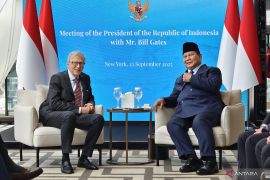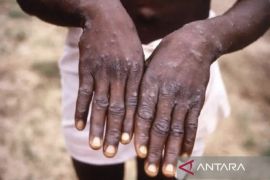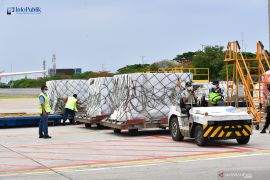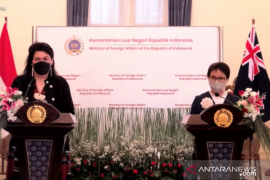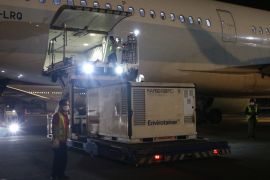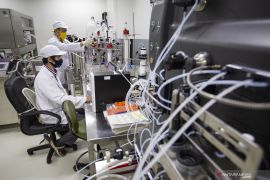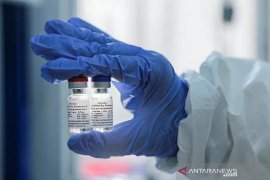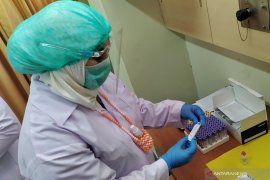The UN organization reported on its official website that seasonal influenza vaccine production capacity has increased globally from less than 500 million doses per year in 2006 to close to 1 billion doses per year at the end of 2010.
The WHO has awarded grants to 14 developing countries to establish in-country manufacturing units for influenza vaccine. The developing countries are Indonesia, Brazil, China, Egypt, India, Iran, Kazakhstan, Mexico, Republic of Korea, Romania, Serbia, South Africa, Thailand and Vietnam.
Of these manufacturers, five countries - India, Indonesia, Romania, Republic of Korea and Thailand - already have a licensed vaccine on the market, while the rest of the countries will follow suit soon.
The WHO facilitated the creation of a "technology transfer hub" at the Netherlands Vaccine Institute (RIVM) to provide training in the production of inactivated influenza vaccine produced in embryonated eggs. Many grantees have received training through this hub.
"A similar hub at the University of Lausanne is currently offering training in the production of adjuvants for pandemic influenza vaccines. Indonesia is currently receiving technology transfer from this hub," the organization said on its website.
China became a major player in the global vaccine market after the WHO certified the country`s FDA (SFDA) as a "competent authority".
At the 65th World Health Assembly, held in May in Geneva, Switzerland, WHO Director-General Margaret Chan said: "Once individual vaccines are prequalified by WHO, the country`s capacity to produce a large number of vaccines at very low prices will revolutionize vaccine supplies and their prices."
Indonesian vaccine manufacturer Bio Farma, which has also received WHO prequalification, has been recognized as the largest producer of oral polio vaccine in the world.
"Bio Farma produces 1.4 billion doses of oral polio vaccine, the highest in the world," Developing Countries Vaccine Manufacturers Network (DCVMN) president Akira Homma told a press conference in Kuta, Bali, during the opening of the 13th annual general meeting of DCVMN held from October 31 through November 2.
"Bio Farma is a true example of a successful vaccine maker from the developing world not only because it produces various types of vaccines that are prequalified by the WHO, but also for its initiatives and cooperation in vaccine research with many developing countries," he said.
"The majority of vaccines bought by the WHO are produced in developing countries. That is because they offer the quality as the developed world, but at lower prices," Homma noted.
Bio Farma President Director Iskandar said on the sidelines of DCVMN meeting that Indonesia was now capable of assisting other developing countries in manufacturing vaccines.
"Now we have produced 11 types of vaccines, all of which are WHO prequalified," he stated. Iskandar also expressed optimism that Indonesia could become a global hub of vaccine development and research.
Bandung-based pharmaceutical company Bio Farma, Indonesia`s sole vaccine manufacturer, has exported vaccines to 117 countries.
"Among Muslim-majority countries, we (Indonesia) are number one," Iskandar pointed out.
"There are 14 developing countries that produce vaccines. Among the Muslim majority countries in the group, Indonesia has the largest potential as a vaccine producer," he noted.
"Bio Farma and Indonesia`s Food and Drug Supervision Agency (BPOM) have been recognized by the WHO through the prequalification program conducted since 1997," he continued.
Therefore, Iskandar added, Bio Farma received the license to export high-quality, affordable vaccines to many developing countries.
Established in 1890, Bio Farma is focusing on the production of anti-diarrhoea vaccine, named rotavirus, and will continue to do so for the coming several years.
Corporate secretary of PT Bio Farma Rahman Rustan said the company would develop research facilities and technological processes jointly with universities in its efforts to manufacture a variety of vaccines.
The Bandung-based company is currently focusing on vaccine production because of high global demand.
"Collaboration with universities, other companies, suppliers and marketing agents is needed to strengthen research and technological processes," Rahman stated.
The Indonesian government has allocated Rp118 billion to vaccine research and production.
"All vaccine companies must conduct research to produce new vaccines needed to cope with various diseases in the world. Therefore, in 2011, Rp118 billion was allocated from the state budget for this purpose," Iskandar said in Bandung, West Java, recently.
Out of a total of 200 vaccine-making companies in the world, Bio Farma is among the 30 companies whose products have been prequalified by the WHO.
"Indonesia has already achieved a sound, technological platform in vaccine production and therefore looks forward to establishing cooperation in vaccine research and developments with other countries," Iskandar stated.
"We make sure that Bio Farma products are safe and are of good quality, both for the domestic and international markets," BPOM head Lucky Slamet said before participants of the DCVMN meeting.
Slamet stated that Bio Farma had re-established the National Vaccine Research Forum (FRVN) to accelerate the development of vaccines.
"The forum now has eight consortia comprising academics and researchers who are working on developing various vaccines to fight diseases including dengue, malaria, HIV/AIDS, rotavirus, avian flu, pneumococcus and new TB," he pointed out.
More than 100 vaccine experts and high-ranking health officials from DCVMN member states and other countries, as well as from UN organizations, are attending the three-day meeting in Bali.
Vaccine experts from the United States, Europe, Latin America and the U.N. are scheduled to give presentations during the event. (*)
(f001/INE/A/H-YH)
Reporter: Fardah
Editor: Fardah Assegaf
Copyright © ANTARA 2012
